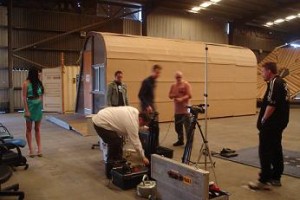Industry education: best of both worlds
 Different schools at different levels provide vastly different experiences for their students, but there are common elements that become evident when discussing trends with the heads of the sector. Miguel Gonzalez reports.
Different schools at different levels provide vastly different experiences for their students, but there are common elements that become evident when discussing trends with the heads of the sector. Miguel Gonzalez reports.
At a time when anyone can grab a camera to create and distribute an audiovisual work, it is essential for the industry to remain rofessional and ensure that those amateur practitioners get the chance to polish and develop their natural talents and interests.
The industry has come to accept that the traditional path of working your way to the top and the road of formal education don’t have to be divergent or mutually exclusive.
Trends in the sector aim to close the gap between education and industry, to prepare students for the realities of the market and make them a little more ‘job ready’. Among the common denominators is an emphasis on story development, audience awareness and business skills to build a sustainable industry; the importance of new media skills which are no longer an extra, but a requirement; the need to balance practice and theory by working together with industry players and listening to their needs while still retaining autonomy over their programs; the advantage of general courses that train people in a variety of skills; and a demand for flexible courses.

